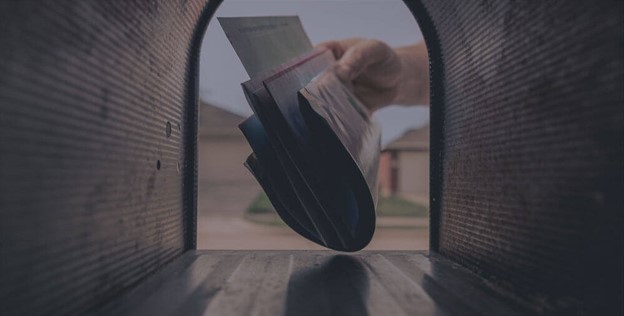
DO YOU WANT TO DONATE TO A CHARITY? AVOID SCAMS BY FOLLOWING THESE BEST PRACTICES
February 18, 2022
MAILING A PAPER CHECK SECURELY: 4 TIPS
February 20, 2022This month, qualifying Americans are starting to receive monthly payments as part of an advance on the expanded 2021 child tax credit. This economic stimulus is intended to help families and the economy rebound from the effects of the COVID-19 pandemic.
But millions of direct IRS payments can mean opportunities for scammers. Criminals are looking to take advantage of the child tax credit to trick people into providing their personal data or financial information. Remember: for more tips on how to improve the quality of your life, visit www.credithealing.org.
How the Child Tax Credit Payments Work
Filing taxes in 2019 or 2020 automatically entitles families to an advance on 50% of the child tax credit. In contrast to previous years, they don’t have to wait until they’ve filed their tax returns to receive this benefit.
Families can receive up to $300 per child under the age of six, and up to $250 per child between 6 and 17 years old, from July to December. Payments, whether by direct deposit, paper check or debit card, are processed on the 15th of every month.
Your income, number of dependents, and other eligibility factors determine how much you receive. For single filers, the maximum benefit is $75,000, for heads of household, $112,500 and for married filers, $150,000. For higher incomes, the payments gradually decrease.
How to Avoid Scams
Families who are eager to receive their payments are targeted by scammers. A scammer might pretend to be a company that will help you locate your payment or receive it early. You might be approached by someone who claims to represent the IRS and asks for personal information or bank account information in order to receive your payment.
The truth is that criminals are trying to gain access to your financial information or personal details. Knowing the following will help you avoid child tax credit scams:
- You will not receive unsolicited calls, texts, or emails from the IRS asking for your personal information. All IRS communications are sent through the mail.
- You do not need to do anything to receive the child tax credit payments if you filed your taxes in 2019 or 2020. Payments are automatically deposited via direct deposit, paper check, or debit card.
- Update your IRS information only if your income, number of dependents, marital status, bank account information, or address has changed.
Visit the IRS website dedicated to the advance child tax credit payments to determine your eligibility, manage payments, submit updated information to the IRS and provide information if you aren’t required to file a tax return but are still eligible for a payment.
Is your personal information on the dark web? Make sure your identity isn’t at risk!


